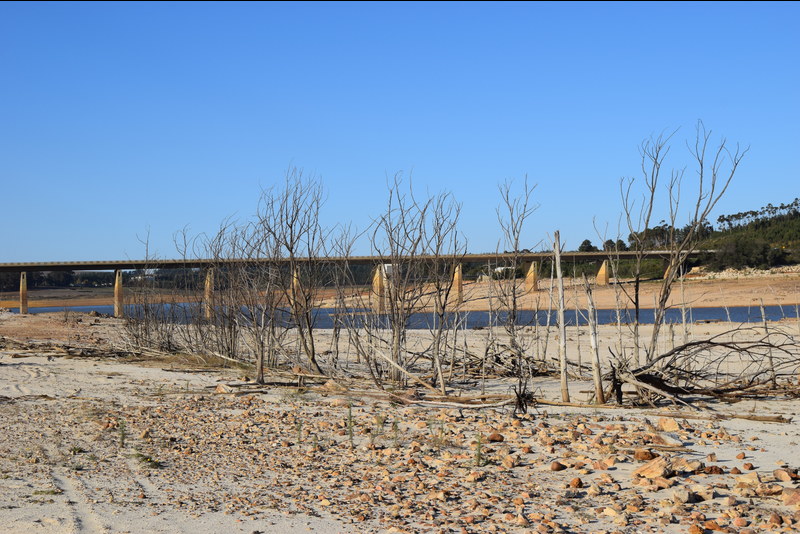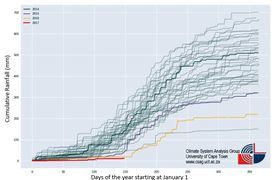UCT responds to water crisis
01 June 2017 | Story Kevin Winter. Photo Kevin Winter.
A UCT Water Crisis Task Team was established last week to hold urgent discussions in response to the ongoing water crisis in Cape Town.
The meeting was called by Professor Loretta Feris, UCT’s Deputy Vice-Chancellor for Transformation, whose portfolio includes the development of an institutional forum and culture. The task team is being chaired by Dr Kevin Winter of the Department of Environmental and Geographical Science (EGS) and the Future Water Institute, with representatives from Properties and Services, Maintenance, Risk Management, Student Housing, and academics. Future meetings will include a wider range of representatives and members of the student body.
The City of Cape Town’s recent announcement of Level 4 restrictions recognises that the circumstances are critical and has placed severe constraints on water use. These restrictions are likely to be in place for some time. The first winter rains, which are expected soon, are unlikely to bring instant relief. It is estimated that it will take at least two seasons of average rainfall to restore the major dams to full capacity. Meanwhile seasonal rainfall projections remain uncertain with some reports suggesting that the expected regional rainfall will be below average.
The prolonged drought, signs of which began already began in 2015, will necessitate changes in the way water is managed in Cape Town and the region as a whole. The task team is being put in place to help guide how UCT needs to respond to the immediate circumstances and in the long term. It will include improving reporting and responses to leakages, ensuring that water meters are identified and are functional, dealing with poor water management practices, and reducing the over-reliance on treated water where it is safe and acceptable to do so.
Immediate actions of the team include not only the urgent need to raise awareness on campus and within residences through communication and useful information, but also to consider the long-term plan that will enable UCT to become a water-sensitive campus.
The current crisis is an opportunity to re-examine water use, to become more innovative in the reuse of water. We need to build a water-sensitive campus where water is valued, used safely and demonstrates what can be achieved in all areas of campus life.
 This work is licensed under a Creative Commons Attribution-NoDerivatives 4.0 International License.
This work is licensed under a Creative Commons Attribution-NoDerivatives 4.0 International License.
Please view the republishing articles page for more information.










